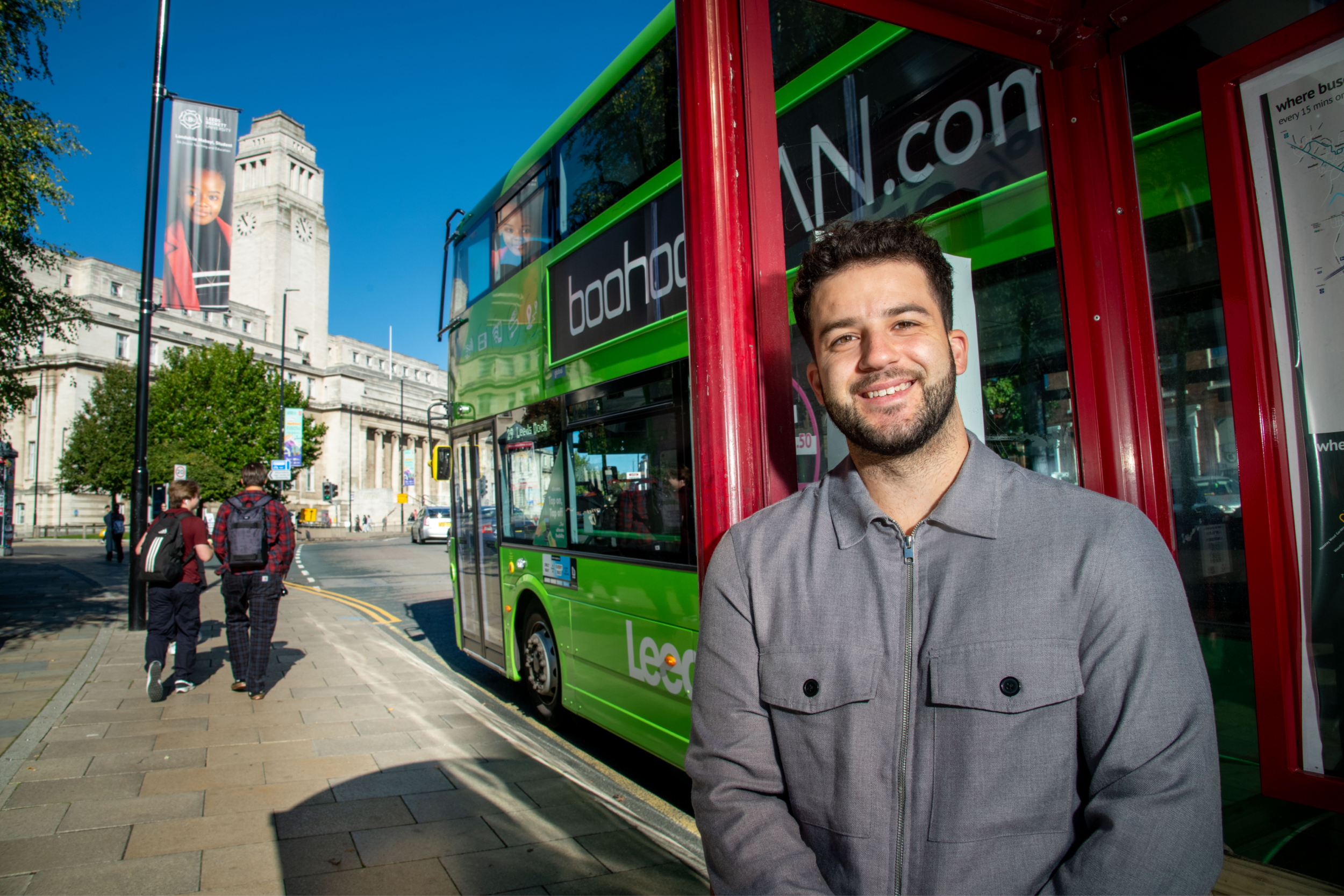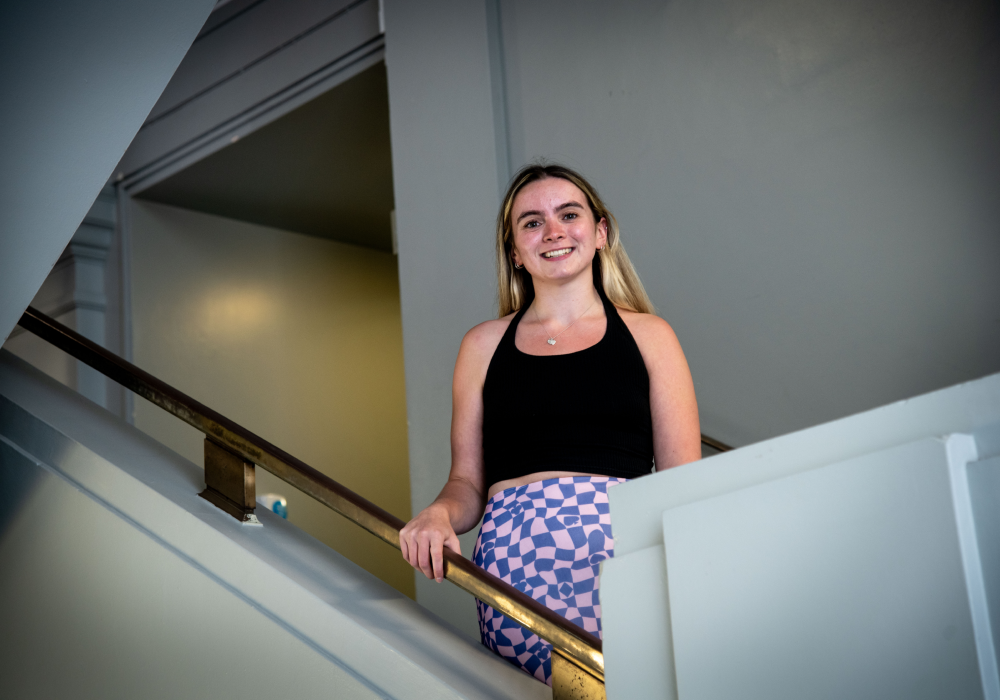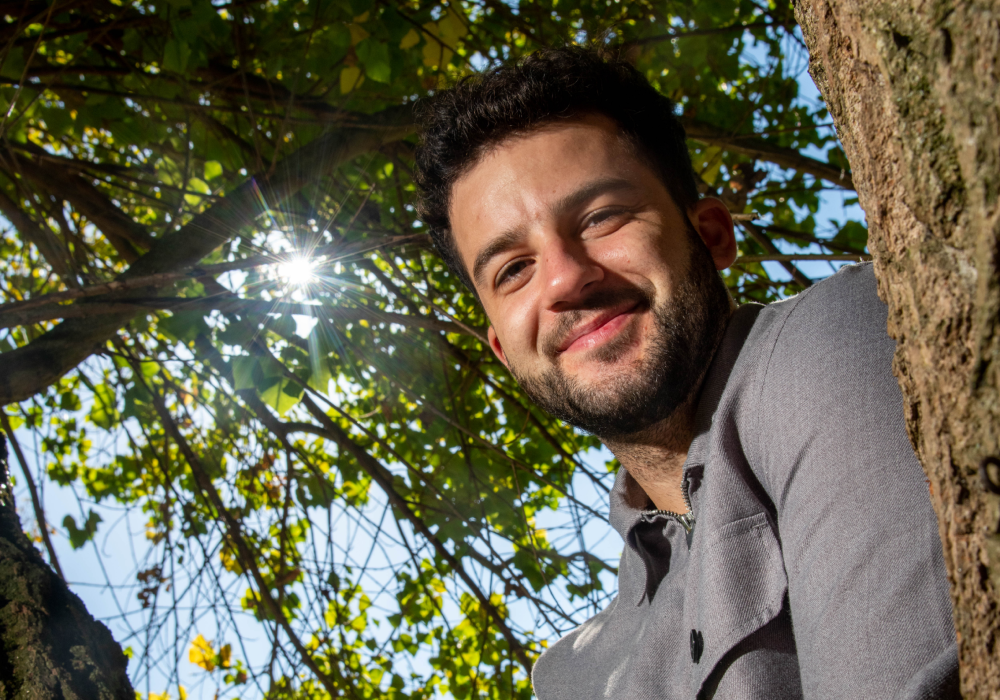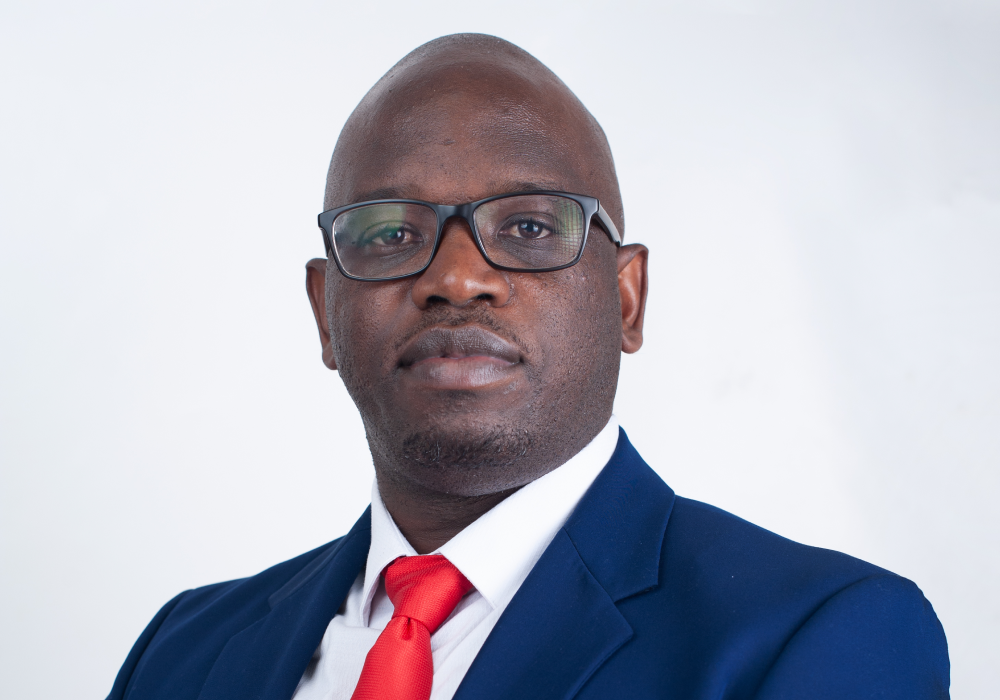Life in the engine room

Postgraduate researchers are addressing some of the biggest challenges facing society. Meet some of them here.
Ciara Higham
Understanding COVID-19 Transmission

“In my final year of University I toyed with the idea of doing a PhD, but I thought I wasn’t clever enough.”
Having graduated with a First in maths and physics at Manchester, Ciara Higham should scarcely have doubted her abilities.
After briefly working in a call centre, Ciara realised how much she missed education, and was recommended to join the fluid dynamics research group at Leeds. “I’m looking at the risks of COVID-19 transmission in shared toilets, such as in workplaces. Faeces may contain infectious viruses, and when the toilet is flushed these can become airborne or land on surfaces. I’m researching whether these could present an infection hazard, and this has implications for other diseases.”
Her research is supported by donor Phil Dolan and among her supervisors is Professor Cath Noakes, who advised the government on infection risks during the pandemic.
Ciara is a passionate ambassador for the STEM subjects and volunteers with a group inspiring young people and their families through maths. “This may be something I could do as a career in future, but I’m also interested in industrial research or work that informs public health. The field is so broad.”
Faeces may contain infectious viruses
Ciara is researching whether these could present an infection hazard.
Cameron Rout
Hydrogen as a heavy vehicle fuel

“I knew I wouldn’t go into academe,” says Cameron Rout, now nearing the end of a PhD which has given him the expertise to land an exciting role in a fast-growing industry.
After achieving a First in chemical engineering at Teesside University and a Master’s at Leeds, Cameron looked at options for postgraduate research: “Bioenergy really interested me. Oil and gas won't be around forever; companies need low-carbon solutions to reduce their carbon footprint.”
Funded jointly by the Engineering and Physical Sciences Research Council and Barry Slavin (Law 1968), Cameron is examining hydrogen as an alternative to diesel for heavy duty transport, including buses and trucks. “I’m comparing hydrogen with diesel and electric to assess the potential economic and environmental savings.”
He’s shown it can be viable: “Hydrogen is much cleaner than diesel at the exhaust, while the extra weight of the batteries, and emissions from the extraction of materials to make them, offset the benefits of electric vehicles.”
Cameron is glad to see the finish line in sight: “I’m hoping to complete my research soon, and in the New Year I start work with Protium, one of the biggest hydrogen companies in the UK.”
Oil and gas won’t be around forever
Cameron is examining low-carbon transport solutions to help companies reduce their carbon footprint.
Mofwe Kapulu
Water, sanitation and health

“Poor sanitation is a daily reality for millions worldwide,” says Mofwe Kapulu. Changing that, particularly in his home country of Zambia, is his driving passion.
“Only 14 per cent of the population in the capital Lusaka have access to mains sewerage,” he says. “Those in the poorest areas mostly depend on pit latrines.”
Mofwe studied engineering and then a Master’s in rural water supply at the University of Zambia, before becoming a lecturer there, working on projects aimed at improving local sanitation. Then a scholarship funded by Philip Tracy (Chemical Engineering 1972) enabled him to study with the renowned Water Sanitation and Health group at Leeds.
His work examined how to provide safe sanitation for a city like Lusaka. “I looked at costs, policy, regulations and planning, and developed a framework for utility companies and policymakers to make informed decisions. It’s feasible to do something about it; making incremental improvements to the existing systems can make a real difference.”
Now back in Zambia, Mofwe's work is making that impact: “I’m helping Lusaka City Council integrate water and sanitation services planning, and hopefully my research will also improve quality of life in other cities which use the findings.”
Professor Luke Windsor
Dean of the Leeds Doctoral College
“Our postgraduate researchers are the engine room of research.”
As Dean of the Leeds Doctoral College, Professor Luke Windsor is a passionate advocate for postgraduate research, and for the impact doctoral researchers can make, both during their three or four years of study and in their subsequent careers.
“Postgraduate researchers bring a lot to the University, both supporting the wider projects of our established researchers and by examining new areas of inquiry,” he says. “The examples on these pages show some of the amazing work our researchers are doing in areas such as medicine and engineering.
“There’s a misconception that once people have completed their doctorate they move into academe. Some do of course, and they’re part of the next generation of academics, but they also move into industry, government agencies and charities. They bring their new employers a wealth of expertise, rationality and problem-solving skills.”
In this video, he discusses the importance of this work – and the support which the University gives to PhD researchers.